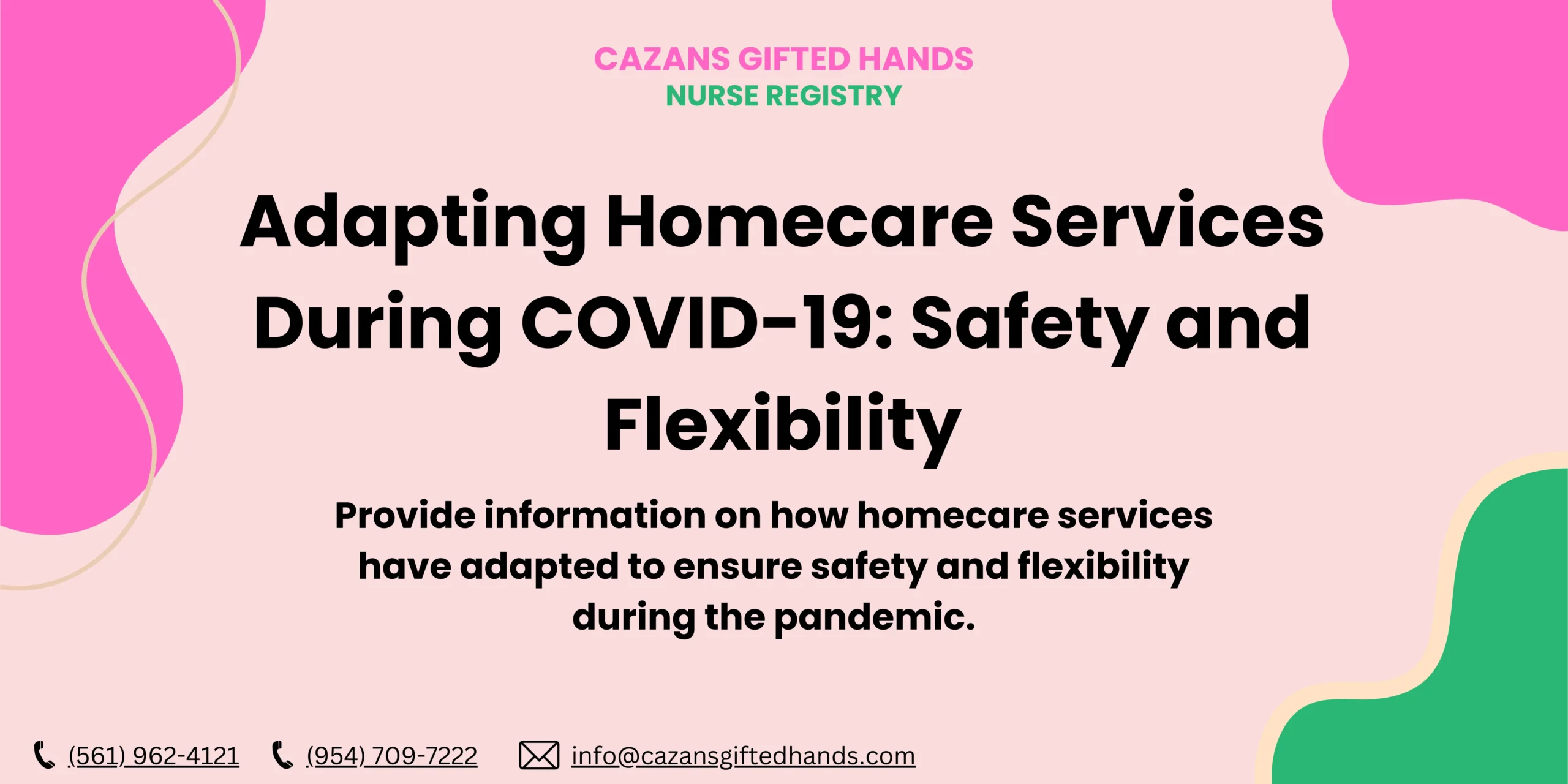The COVID-19 pandemic has significantly impacted the way homecare services are delivered. Ensuring the safety and well-being of seniors while providing flexible care has become paramount. This blog explores how homecare services have adapted during COVID-19 to meet these challenges.
Enhanced Safety Protocols
Strict Hygiene Practices
Homecare providers have implemented strict hygiene practices to minimize the risk of COVID-19 transmission. This includes frequent handwashing, wearing personal protective equipment (PPE), and disinfecting surfaces regularly. These measures ensure that both caregivers and seniors remain safe.
Health Screenings
Regular health screenings for caregivers and clients have become a standard practice. This includes temperature checks, monitoring for symptoms, and testing for COVID-19 as needed. Health screenings help identify potential risks early and prevent the spread of the virus.
Utilizing Technology for Remote Care
Telehealth Services
The use of telehealth services has increased during the pandemic, allowing seniors to receive medical consultations without leaving their homes. Telehealth provides a safe alternative to in-person visits, reducing exposure to COVID-19 while ensuring access to healthcare.
Virtual Companionship
To address the issue of social isolation, many homecare services have introduced virtual companionship programs. Caregivers can interact with seniors through video calls, providing social interaction and emotional support from a safe distance.
Flexible Care Plans
Customized Care Adjustments
Homecare providers have adjusted care plans to accommodate the changing needs and preferences of seniors during the pandemic. This flexibility ensures that seniors receive the necessary support while adhering to safety guidelines.
In-Home Activities
Caregivers have adapted by incorporating more in-home activities that keep seniors engaged and active. From virtual exercise classes to at-home hobbies, these activities help seniors maintain their physical and mental well-being.
Support for Family Caregivers
Providing Resources and Guidance
Homecare services have focused on providing resources and guidance to family caregivers during the pandemic. This includes information on COVID-19 safety protocols, mental health support, and tips for managing care at home.
Respite Care Options
Recognizing the increased stress on family caregivers, homecare providers have expanded respite care options. This allows family caregivers to take breaks while ensuring their loved ones continue to receive professional care.
Ensuring Continuity of Care
Emergency Preparedness
Homecare services have developed comprehensive emergency preparedness plans to ensure continuity of care during the pandemic. This includes having backup caregivers available and maintaining open communication with families to address any concerns.
Adapting to New Regulations
Homecare providers have stayed informed about changing regulations and guidelines related to COVID-19. By adapting to these new requirements, they ensure that care delivery remains compliant and safe.
Conclusion
Adapting homecare services during COVID-19 has required implementing enhanced safety protocols, utilizing technology for remote care, offering flexible care plans, supporting family caregivers, and ensuring continuity of care. These adaptations have been crucial in providing safe and effective care for seniors during the pandemic.
For more information about our adaptable homecare services, visit our homecare services page.To learn more about our location, check out our Google Business Profile.

